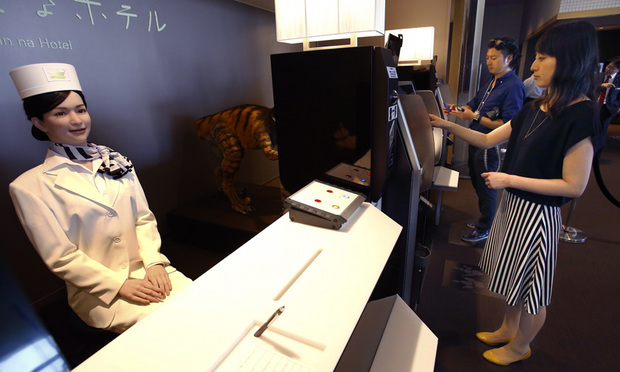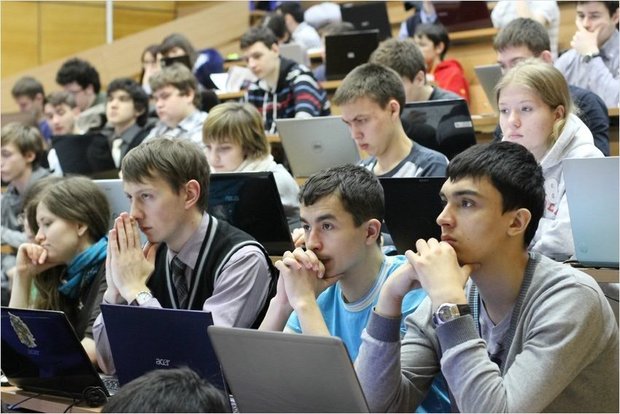‘I don't think that the reforms in KFU really aim to introduce Western standards of education’
The famous orientalist Larisa Usmanova in the column, prepared specially for Realnoe Vremya, compares the changes that are taking place in the Department of Tatar studies with Japan Higher School. She reflects upon the Japanese system of education, the integration of Japanese universities into the international educational space and upon why it is unlikely that the reforms that are being carried out in the Kazan State University will help the university to meet the Western standards.
'The Japanese University by its structure does not differ from the American ones'
The Japanese higher education system, basically, is a copy the American system, introduced after the Second World War. Despite the fact that a part of the old universities, among which is the former Imperial (now State) Tokyo University, a private Waseda University, are organized and arranged according to the European universities, the education system is aligned with the American model. Historically, the university education — the Western trend, we can see it even from the architecture of buildings of the oldest universities. Of course, in some of them, especially in the second university according to the public rating — Kyoto University, purely Japanese subjects are taught (Japanese culture, Japanese language, Japanese philosophy). By the way, Kyoto University gave Japan in addition to the Nobel laureates for Natural Sciences almost all Nobel laureates in Literature. In this University, the Humanities and Natural Sciences harmoniously coexist.
The Japanese University by its structure does not differ from the American ones. For the students there is a compulsory part of the courses and an elective part. Moreover, the elective courses really compete with each other, as a student chooses a course that he or she liked. And the professors whose course is chosen by the smallest number of students may lose their working hours.
Training on the bachelor degree takes 4 years, for master degree — two, doctoral — three years.

'Kyoto University gave Japan in addition to the Nobel laureates for Natural Sciences almost all Nobel laureates in Literature. In this University, the Humanities and Natural Sciences harmoniously coexist.' Photo: asiatechnews.com
About the cost of education and the graduates-Nobel laureates
The cost of education varies from a university to a university, it is approximately from 2 500 to 5 000 dollars per year. In the Japanese system there are two types of universities: public and private (there can be public-private, for example, with municipal participation). The education in top universities, such as Waseda, Keio, Sophia, Aoyama Gakuin, State Tokyo, Hitotsubashi, Tsukuba universities — are very expensive. Those who cannot pay for education, they try to get a scholarship in various funds (in Japan they are a huge amount) or to take a bank loan.
As elsewhere in the world, there is a divide between Humanities and Natural Sciences.
In the rankings of the best universities in the world there are always about 30-40 universities of Japan. It is primarily known Tokyo and Kyoto Universities, Tokyo Institute of Technology, University of Tsukuba, the regional universities of Kyushu, Osaka, Tohoku, Hokkaido. They are in the world annual rankings for its technological and natural-scientific directions. The Nobel laureates in Physics of 2008 and 2014 — are from the universities of Osaka and Kyoto, in Chemistry in 2000, 2002, 2008 and 2010 — from the universities, Nagasaki, Tohoku, Hokkaido, Kyoto, in Medicine of 2012 and 2015 — from Kyoto and University of Tokyo respectively.
'The system of higher education in Japan actually duplicates and is integrated into the Western educational and scientific space'
The success of Japan in the late XX–early XXI centuries has only one reason – the emphasis on the scientific and technological progress. When in our universities they only just started to talk about the processes of globalization and formation of post-industrial (information) society, Japan had already adopted the state concept of development of information society in the country by 2000. It is primarily the technological re-equipment of industry, the development of automation and robotics, mobile communications and the transition to information technology at the beginning of the XXI century, the development of high technologies, the support of science and education.
What is more, all these changes went along with the development of new social, environmental and humanitarian technologies, which has led now to the fact that in Japan there is the lowest level of crime, low level of social anxiety and a high degree of satisfaction within the civil society. Yes, Japan is now faced with the problems, but these are the problems of postindustrial society. It is difficult to understand them for our society as our reality takes place in terms of industrialization and the dependence on the sale of energy. That does not contribute to the development and maintenance of trends to the formation of a post-industrial economy and society.

'When in our universities they only just started to talk about the processes of globalization and formation of post-industrial (information) society, Japan had already adopted the state concept of development of information society in the country by 2000.' Photo: gagadget.com
The diplomas of the Japanese universities are accepted in Europe and the West in general, as the system of higher education in Japan actually duplicates and is integrated into the Western educational and scientific space.
Western standards and Russian education
The Western standards, in a narrow sense, are now understood as the universal process of global standardization of education. Hardly anyone in the sane mind would say that the world is not coming to universality, universalization, increasing the compactness of time and space, to more intercultural and inter-civilizational contacts. We are at a unique historical stage of human development that does not repeat early tracks — the world is getting globalized. But how to do it with minimum losses for a state, a nation or a minority there are different views. If we already have the understanding that science is supranational and certainly global by the definition, then the development of the institute of education in each country are understood differently. Under the Western standards are understood, first of all, the requirements for the formation of the value system of Western European civilization, which from the time of Columbus headed the process of internationalization, globalization and scientific-technical progress and is still the leader in these processes.

'On the foreign policy level, we declare opposition to Western values, constantly raising the degree of anti-Western, patriotic sentiments, <> and, at the same time, we purposefully at the state level want to introduce into the minds of younger generations the principles of individualism, liberalism, democracy and freedom.' Photo: kpfu.ru
If we adopt Western standards in education, this means that we want to be like them, and, therefore, we form the Western system of values of the younger generation. However, what is happening now in Russia, in the Russian education, resembles the actions of schizophrenic. On the foreign policy level, we declare opposition to Western values, constantly raising the degree of anti-Western, patriotic sentiments, advocating for cultural affinity with the East (Middle and Far), even talking about some kind of own unique system of values and, at the same time, we purposefully at the state level want to introduce into the minds of younger generations the principles of individualism, liberalism, democracy and freedom. What is implicitly seen under external rigid reporting requirements of teachers, the commercialization, etc., do not be confused: we see how the foundations of the society, on the basis of which the reform has grown, are being broken. And we will face the serious consequences of the not properly conducted reforms.
'I do not think that the reforms in KFU really aim to introduce Western standards of education'
By the way, the last conflict in KFU with the closure of the Department of Tatar studies is just a manifestation of thoughtless planting of Western standards, of a different system of values into the Russian one. The question is, why is the supposedly patriotic leadership of the University engaged in this, for me personally it is not difficult to answer. I don't think they are schizophrenics. Most likely, they are in a deep ideological crisis of its own values. Then why these people are allowed to conduct reforms? We could enter the international educational space without a conflict of values as Japan did, and many European countries, for some reason they have preserved the national identity in the educational standard (example France and Finland), and retained the old institutions and created radically new ones.

'The last conflict in KFU with the closure of the Department of Tatar studies is just a manifestation of thoughtless planting of Western standards, of a different system of values into the Russian one.' Photo: Gulandam Zaripova
I do not think that the reforms in KFU really aim to introduce Western standards of education. I think the main goal of the reforms not only in the University but also in other universities receiving grants from the government — is not to create a system of self-financing but to receive funds from the budget for the enrichment of the administrative apparatus. If in the Western universities the main person in the University is the Professor, in ours — an official of the administration. Western standards — it is primarily the selectivity of the governing apparatus, the collegiality of the governance and transparency of reporting expenditures and revenues to the staff of the University, the bulk of which — the professors. Look at our universities that are being reformed, supposedly shifting on the Western standards: absolutely bureaucratic, almost military model of the vertical of power, starting with the head of the Department, the so-called effective contracts, where the requirements are not to the quality of education(!), but to the formal criteria (number of publications in dubious journals). I don't see any real transition to the Western standards in these reforms. I see in them usual for third world countries with stagnant economies the scheme of distribution of resources by the bureaucracy: once the government gives money in this area, it is necessary to privatize them.
It is a pity that, having destroyed the educational model that form the Russian system of values, we will prevent forming of the model that would really have integrated the young Russians in the Western European civilization. We only marginalize our youth, and deprive them of the future, deepening the conflict of identity.